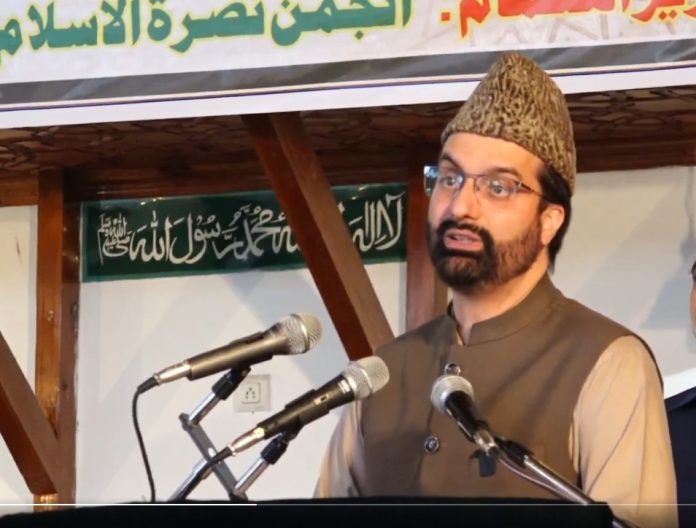Srinagar: According to media reports, this was the third consecutive Friday that Mirwaiz Umar Farooq had been confined to his home (effectively under house arrest) and barred from going to Jamia Masjid in Srinagar to lead Friday prayers.
He asked on X “What law sanctions such an assault on basic rights and turns worship into a crime? Week after week, the authorities lock me inside my home, curb my freedom, and prevent me from fulfilling my religious duties, with no accountability for this authoritarian behaviour.”
He also condemned the repeated restrictions on his movement, accusing the authorities of “contempt for human rights and people’s sentiments.”
Umar Farooq is the chief cleric (Mirwaiz) of Kashmir and chairman of one faction of the Hurriyat Conference. As Mirwaiz, he has religious duties like leading Friday prayers at Srinagar’s historic Jamia Masjid and giving sermons there.
Many view the restrictions as interference with his religious duties (leading Friday prayers, sermons), a historically established role. This has been a major part of the criticism. Critics argue that there has been no formal legal order (e.g. under appropriate detention law) authorizing his house arrest; that it is arbitrary.
The authorities cite security concerns and threats, asserting that some movements / interventions are for his protection. The administration has repeatedly denied that this is detention.
Earlier, on September 22, 2023, Mirwaiz Umar Farooq was released from house arrest after about four years. He was allowed to lead Friday prayers at Jamia Masjid following the release.
However, reports indicate that even after his release in Sept 2023, he has again been placed under house arrest or prevented from delivering sermons / barred from Jamia Masjid on certain occasion.
While “house arrest” or “house detention” is the term used by Mirwaiz and his supporters, the administration has several times denied that he is under arrest, saying instead that security measures are in place due to threats.




